Perhaps a better question: why would Microsoft still invest development efforts in a new Internet Explorer?
First, I must admit a wrong judgement on my part. Back when Project Spartan was announced, I called it the new IE6 . As more and more details emerge, that turns out to be a wrong assessment.
Since its announcement, Project Spartan has been renamed to Microsoft Edge . And it’s actually looking pretty good, from a technical point-of-view.
But I can’t stop wondering: why would Microsoft still invest resources in a new browser?
The Decline Of Internet Explorer#
I’ve got a fair amount of Google Analytics websites I have access to. If I compare the technology stack of the visitors, more importantly their User-Agent, we can see Internet Explorer continue to decline.
For instance, here are the User-Agent (browser) statistics of this blog. Target audience: highly technical.
2013-2014
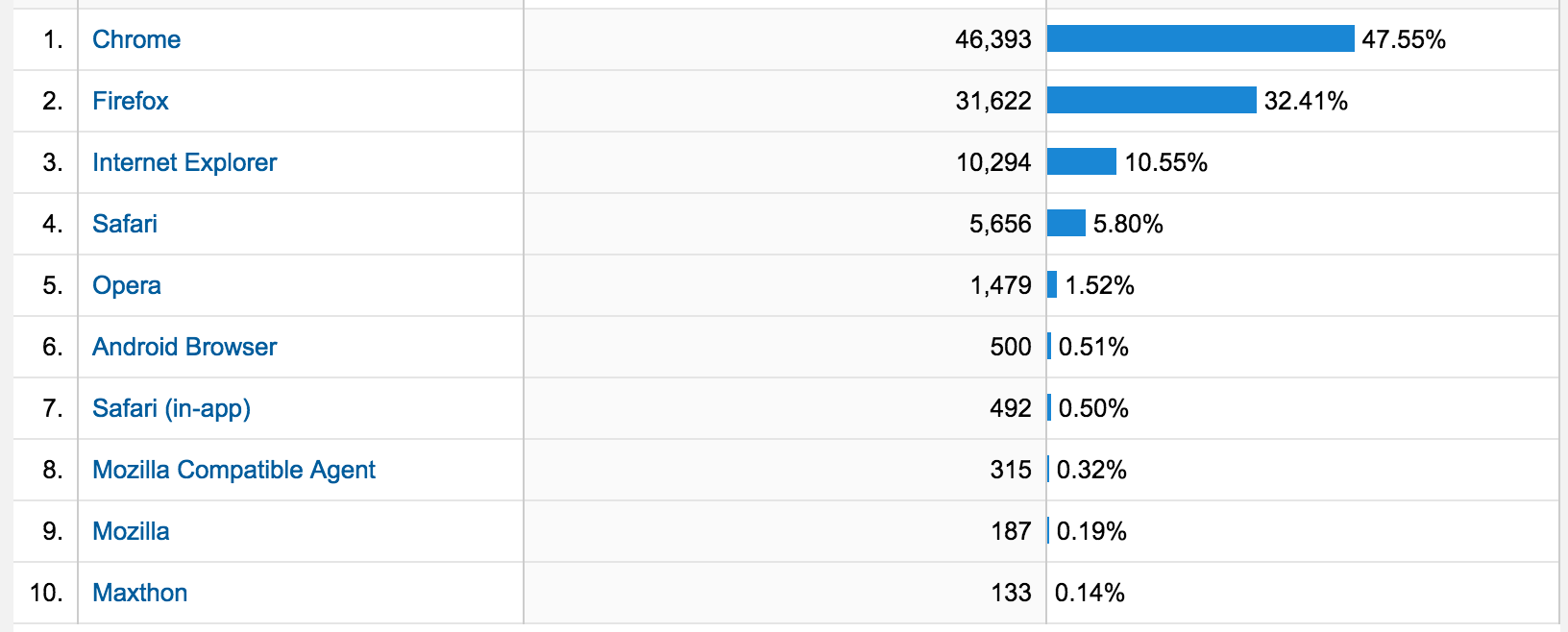
2014-2015
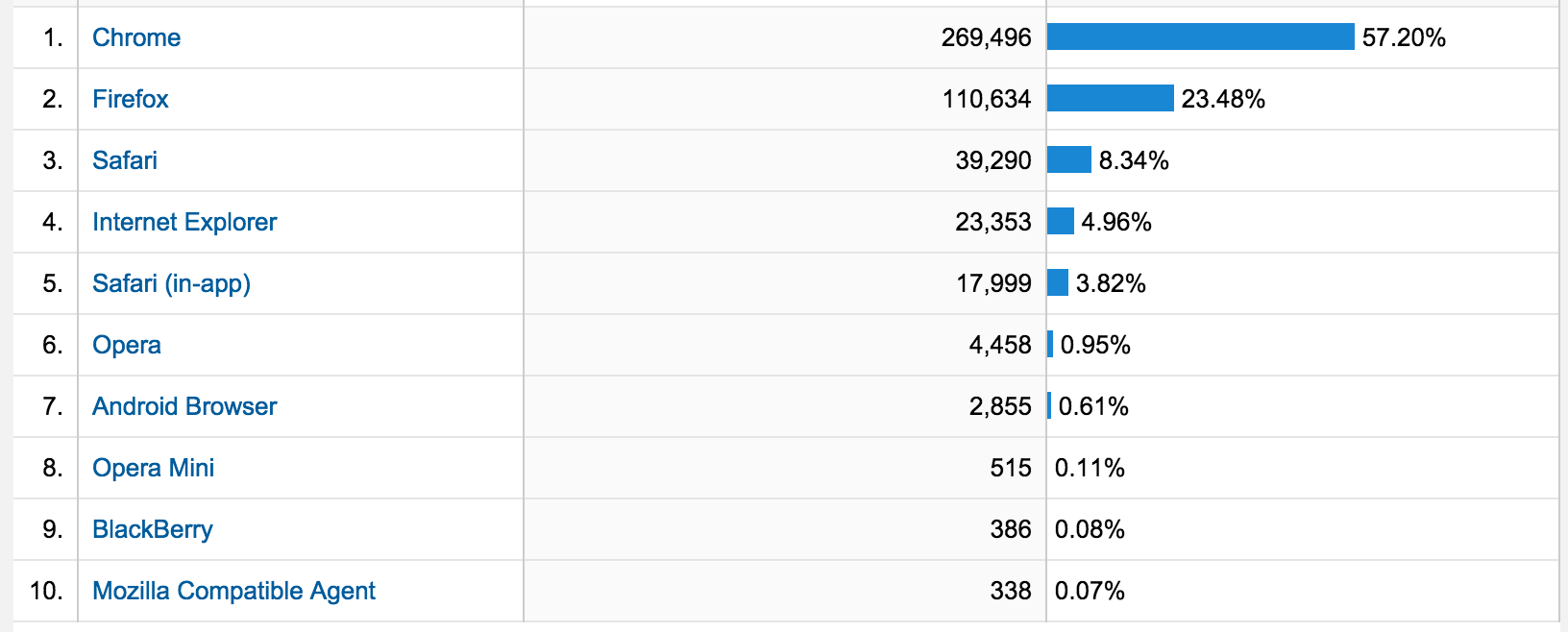
Internet Explorer: from 10.55% to 4.96%.
A large auto-motive website. Target audience: normal people.
2013-2014
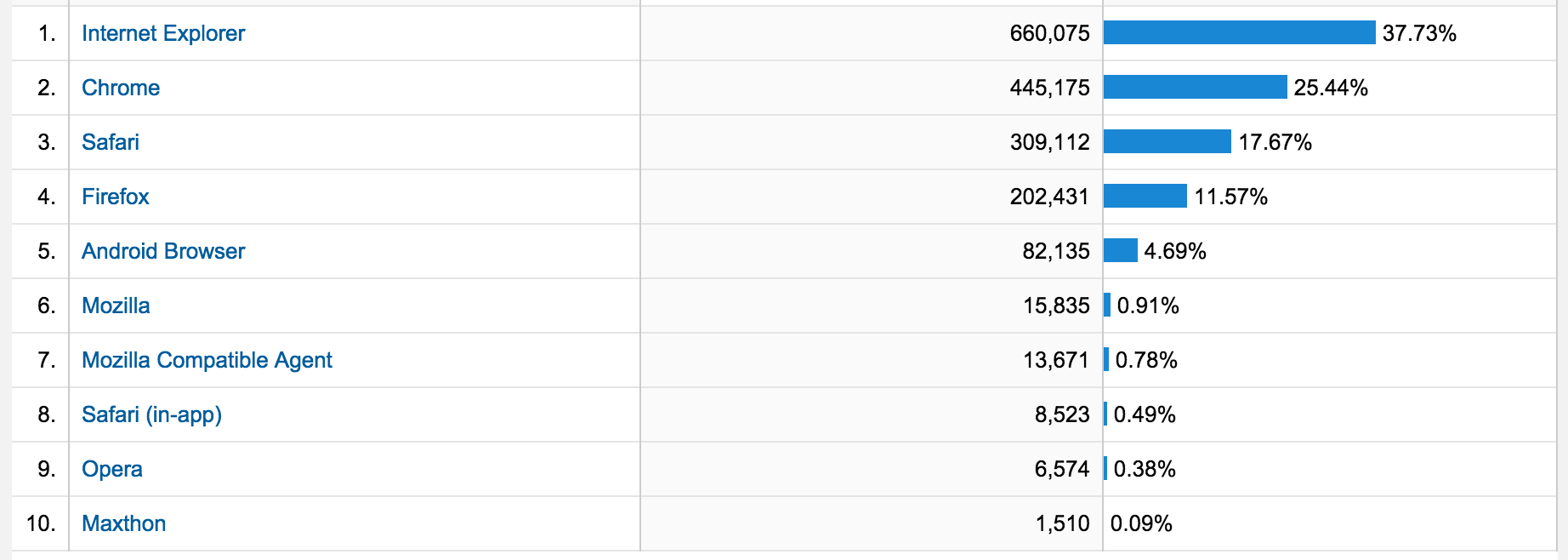
2014-2015
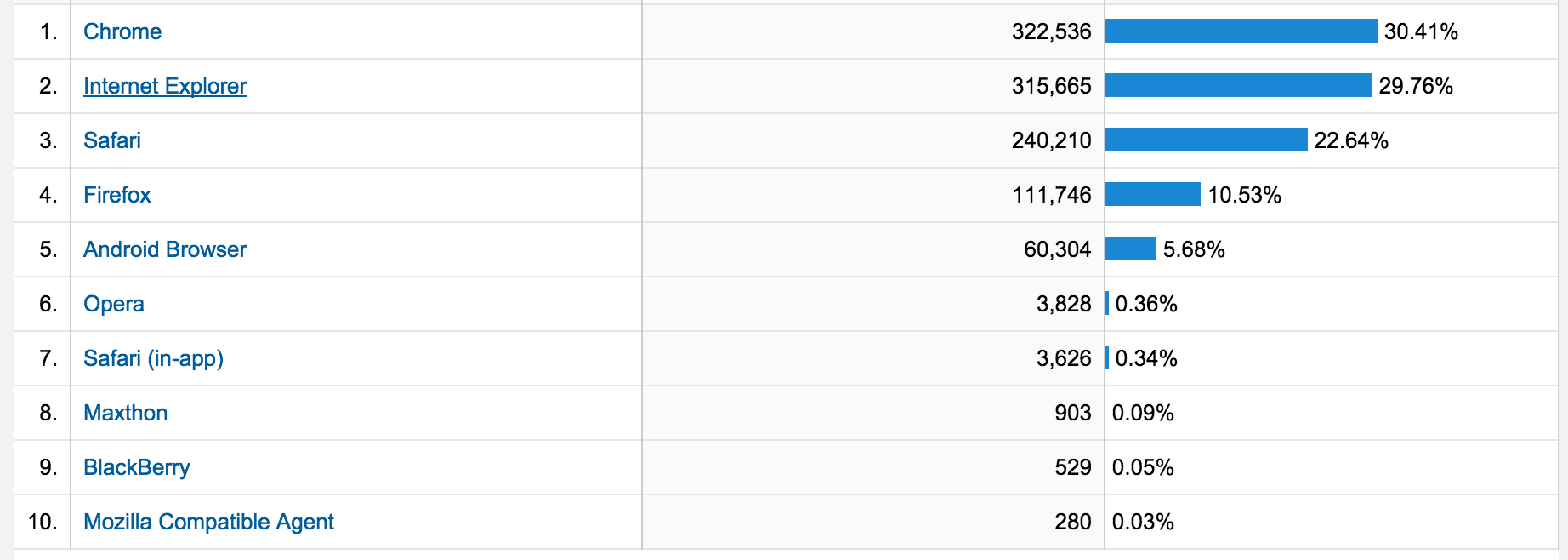
Internet Explorer: from 37.73% to 29.76%.
A large entertainment website. Target audience: normal people.
2013-2014
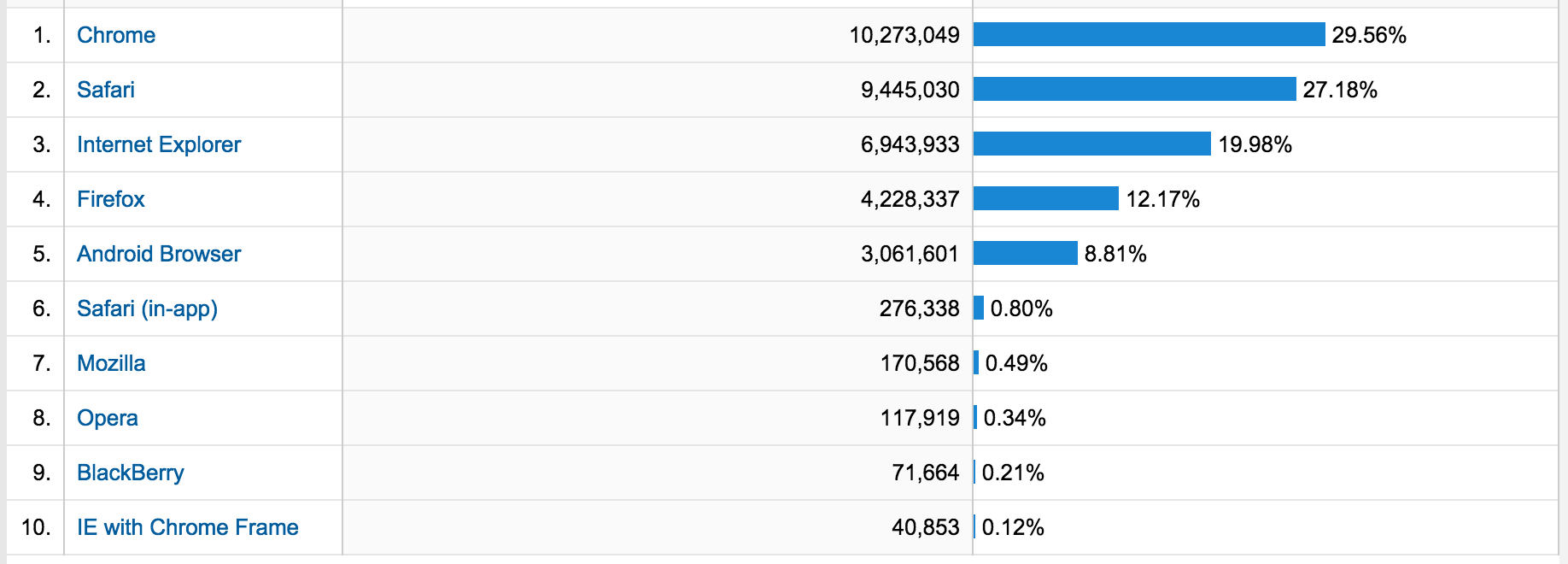
2014-2015
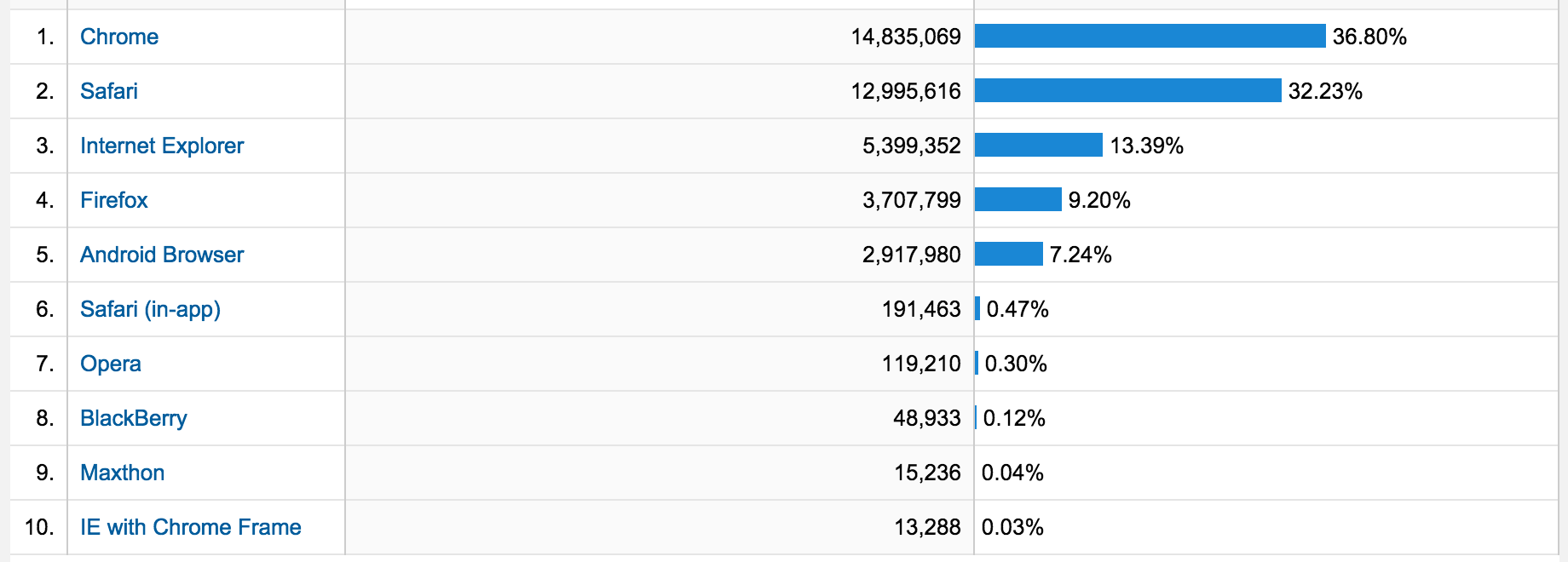
Internet Explorer: from 19.98% to 13.39%.
Our company website . Target audience: mixed technical and normal people.
2013-2014
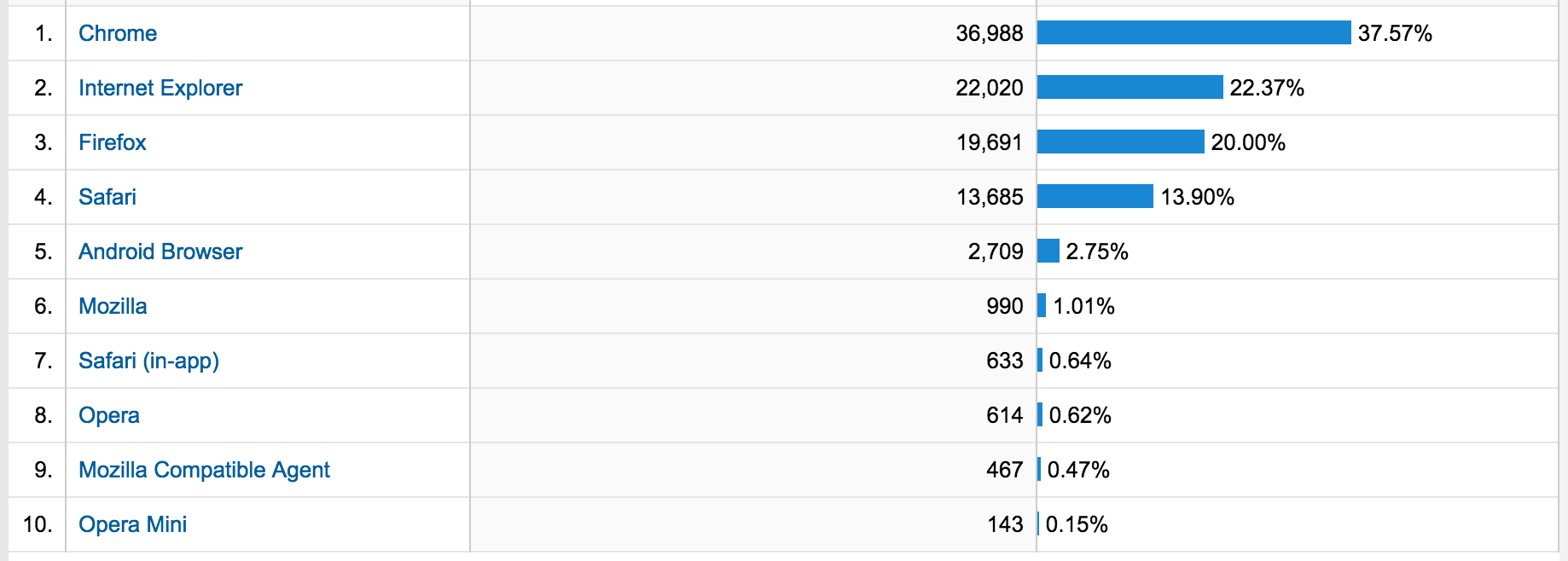
2014-2015
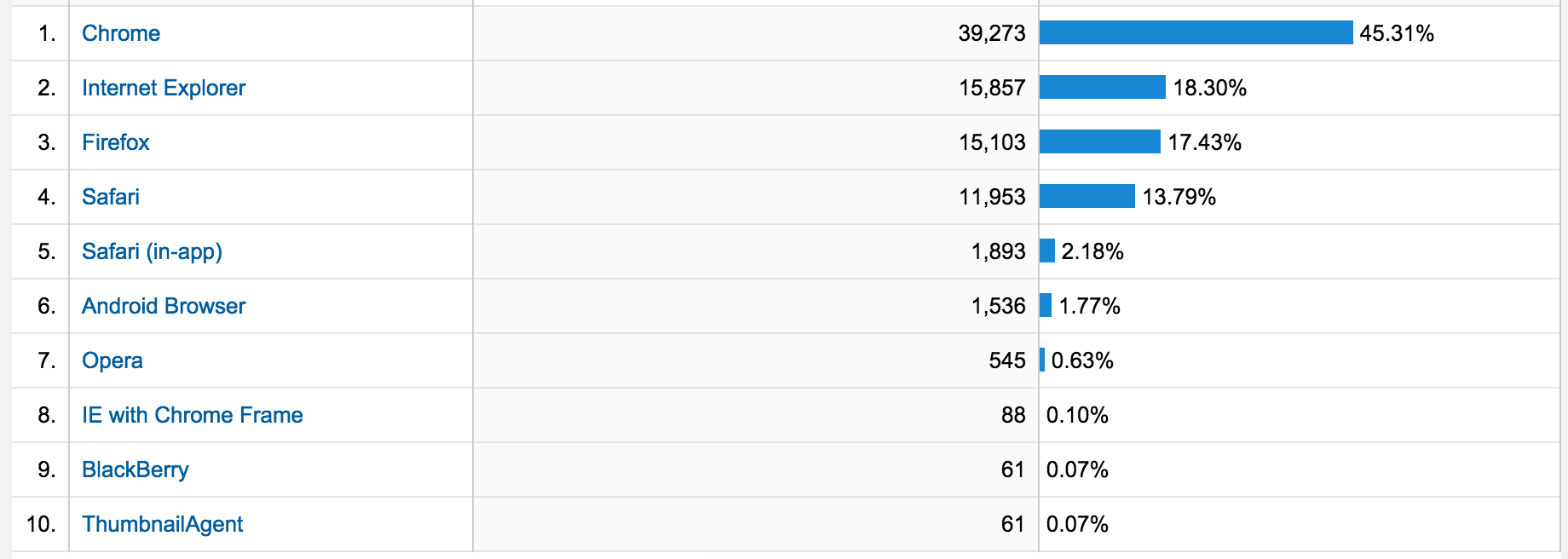
Internet Explorer: from 22.37% to 18.30%.
I think I’ve got a good mix of content sites in my examples. Suffice to say, Internet Explorer is declining in each and every segment. Chrome is winning in each and every segment, with Firefox a close second.
Every geek could probably have predicted this, without any numbers.
Betting On A Browser#
What does Microsoft have to gain by building their own browser again? Their reputation amongst web developers with Internet Explorer isn’t great. There’s a reason why websites are developed in either Chrome or Firefox (debug-tools, compatibility, …) and not in IE.
Even today, we’re cursing at Internet Explorer for its slow adoption of web standards, its mix of old and new versions, its quirks and all the workarounds we need to make modern web development work.
Why does Microsoft risk this all again with a new browser?
Or perhaps a better question: with Microsoft using existing technology to build tools like the new Visual Studio Code (using Github’s Atom as its foundation), why would they go and create an entirely new rendering engine for the web?
Why not use existing engines with a proven track record, like Webkit , Blink or Gecko ? Why risk your image even more, when there are viable alternatives?
Monetising The Browser#
There’s only one way to make money from building a web browser. Advertisement.
In Microsoft’s case, it’s by pushing Bing as the default search engine and having ads be displayed in the search results.
I would even go so far as saying that without Internet Explorer/Edge, there would be no Bing. The search marketshare is dominated by Google. If Microsoft didn’t push a browser that defaulted to its own search engine, it would not have any value.
Bing needs Internet Explorer. Internet Explorer/Edge needs Bing – it’s the reason it exists.
The Alternatives#
When actually considering possible alternatives, for Microsoft, there probably aren’t that many. If they were to ship with an existing browser – with default settings to use their Bing search engine – what options would they have?
Google Chrome? They’ve got Google Search to compete with Bing.
Apple’s Safari? They’ve got Mac OS X and iOS to compete with Windows and Windows Phone.
Mozilla Firefox? They recently chose Yahoo as the default search engine over Google and Bing.
All things considered, they probably don’t have much choice. Adopting one of the existing browsers as the default would mean giving market share to a competitor.
Microsoft has to develop their own browser. It’s driving their Bing market share.
I’d just wish they had based it on an already existing rendering engine.